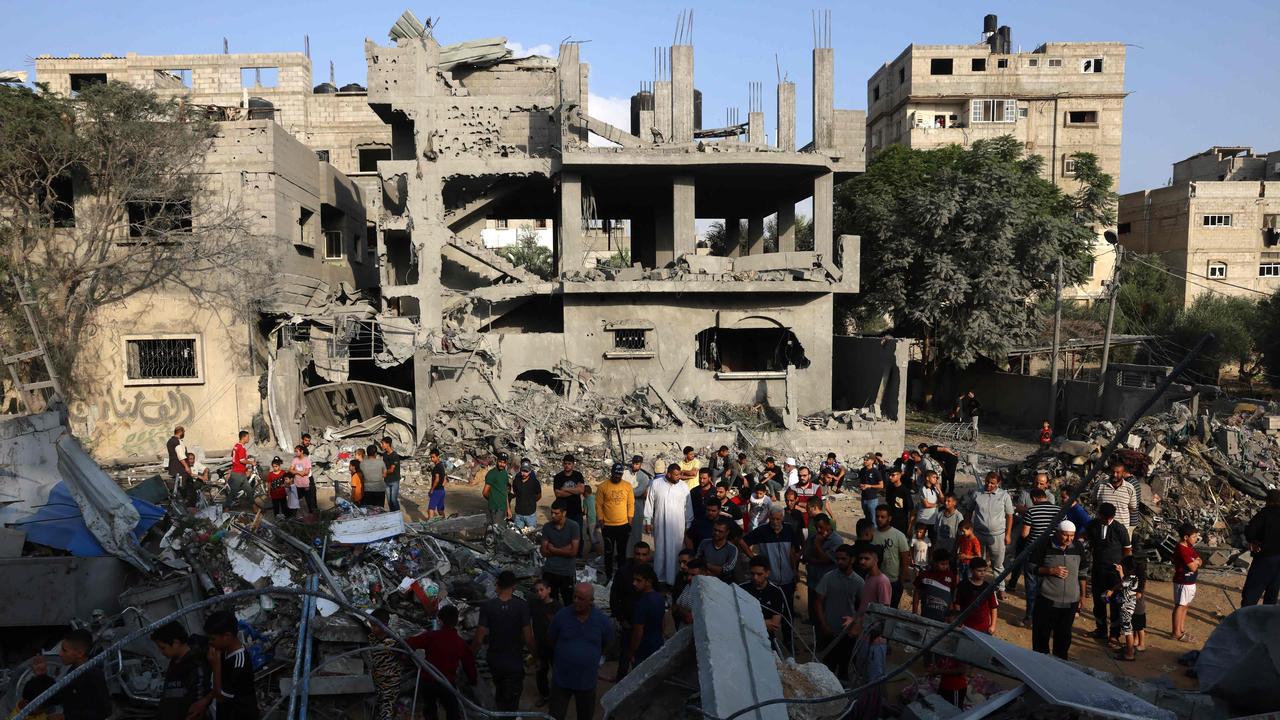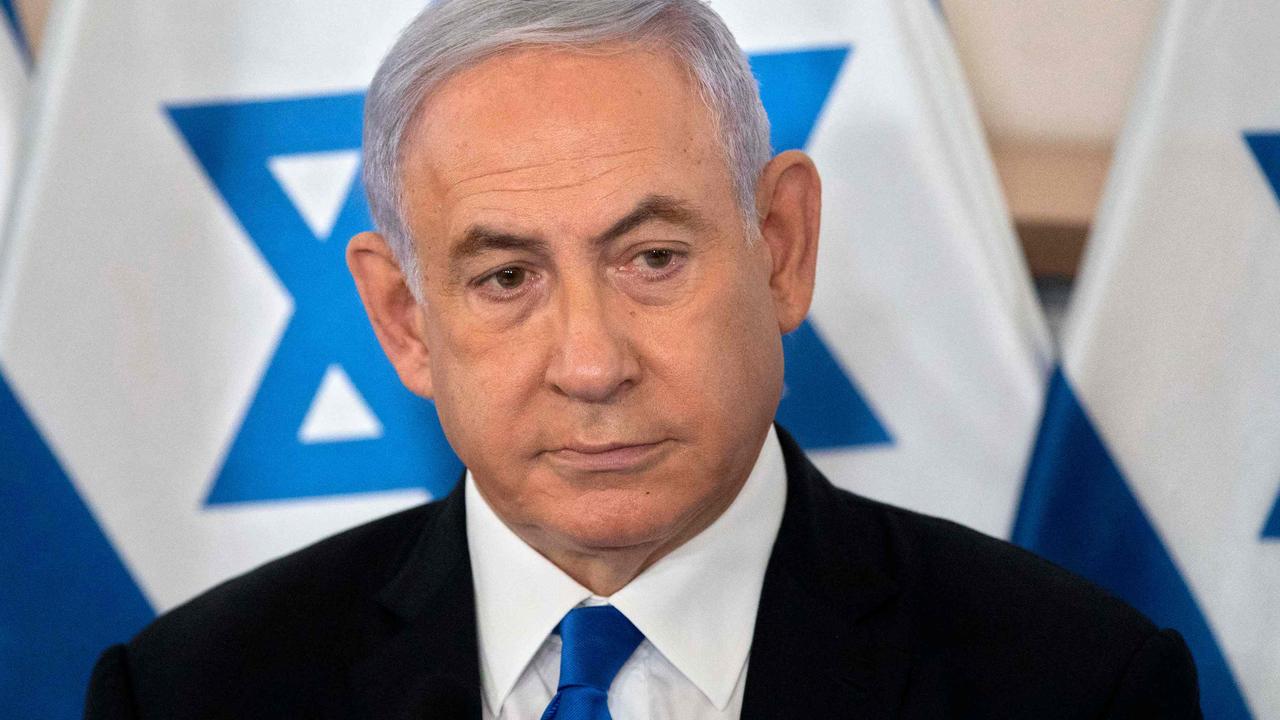
This article is more than
2 year oldCOMMENT
“A crime against humanity isn’t just about killing humans. It is about destroying our trust in humanity,” the Israeli historian Yuval Harari said last week.
“When you witness things like parents being tortured and executed in front of their children, or toddlers being brutally murdered, you lose all trust in human beings. And you thereby risk losing your own humanity too.”
By that measure, the atrocities Hamas militants committed in southern Israel earlier this month achieved their goal. We have all lost a little humanity in the fallout, be it those celebrating the wanton butchery of children, those excusing the mounting suffering of Palestinian civilians, or those of us somewhere in the middle, wrestling with our righteous fury without quite managing to master it.
These next quotes come from Tzipi Hotovely, Israel’s ambassador to the United Kingdom, upon being asked about the escalating “humanitarian crisis” in the Gaza Strip.
“Are you a mother?” Ms Hotovely replied, addressing Sky News host Kay Burley, her voice shaking with emotion.
“What would you think if your children would have been executed in front of your eyes? Would you expect your government to think about those Nazis committing those crimes and to say, ‘Wait a second, first of all we need to protect the enemy, and then we need to protect our children? Your children come as priority to your prime minister. Do you know that?”
Kay Burley: "Whats the view on the humanitarian crisis in Gaza this morning?"
— Saul Staniforth (@SaulStaniforth) October 16, 2023
The Israeli ambassador to the UK: "There is no humanitarian crisis..."
"There isn't?"
"There isn't" pic.twitter.com/mvLIHHtTST
The question was specifically about Palestinian civilians trapped in Gaza with dwindling access to food, water and medicine – this was before very limited aid was allowed to start trickling across Gaza’s border with Egypt. Ms Hotovely responded by lumping those civilians in with “the enemy”. She was indignant, appalled, furious that the question was even being asked.
It’s unusual for a professional diplomat to speak so intemperately about anything. But to answer her core challenge: I would expect any government acting in my name to think clearly. To plan ahead. Not to rush in and make a horrifying situation even worse. And yes, I would expect it to consider civilian lives. That is what separates legitimate nations from terrorists.
Israel’s reaction is understandable; it’s human nature to demand decisive action after being victimised. But Benjamin Netanyahu’s government is doing exactly what Hamas wanted. It is behaving emotionally, not rationally.
The particularly sickening nature of Hamas’s crimes – the beheadings, the burnt bodies, the murdered babies – were terrorism 101: they were designed to provoke. To horrify and enrage Israel so much that it would act rashly.
Peace is an existential threat to Hamas, something it can never accept, which means it must foment violence. And that means not just committing acts of violence itself, but provoking Israel to do the same, until peace is no longer an option for anyone.
The only lasting result of Israel retaliating against Hamas by levelling neighbourhoods and, potentially, launching a ground invasion of Gaza, will be the deaths of innocent people in their thousands and the complete radicalisation of a new generation of Palestinians.
And so the cycle of violence continues. And Hamas wins.

This is how terrorism operates, by exploiting human nature and eroding your soul until it successfully drags you down to its level, into the moral gutter. Every fibre of your being tells you that atrocities like those we saw in southern Israel need to be repaid. It’s so, so difficult and counterintuitive to choose restraint.
But you must keep the end goal in mind, and work towards it. And what is the end goal here? It has to be peace. It has to be. Not with Hamas – that’s impossible – but with the Palestinians more broadly.
Mr Netanyahu has never seemed particularly interested in a lasting, sustainable peace. He thought he could keep the Palestinians in their cage, and maintain the status quo indefinitely, safely behind the shield of the Iron Dome and the IDF. He fell victim to hubris.
For years, Israel has undermined the peace process with the more moderate Palestinian political faction, Fatah, which governs the West Bank and supports a negotiated two-state solution. Mr Netanyahu has simultaneously enabled Hamas, which seeks Israel’s total destruction, allowing it to be propped up by cash from Gulf states.
The idea, as he reportedly told colleagues from his political party back in 2019, was to keep the Palestinians divided, and hence keep a sovereign Palestinian state off the table.
“Anyone who wants to thwart the establishment of a Palestinian state has to support bolstering Hamas and transferring money to Hamas,” Mr Netanyahu said.
“This is part of our strategy: to isolate the Palestinians in Gaza from the Palestinians in the West Bank.”
Not a great idea, it transpires. What Israel should have done, and should try to do in the longer term now, is demonstrate that it’s serious about working with Palestinians who choose diplomacy over bloodshed.
If you back desperate people into a box, if you convince them the peaceful option will lead nowhere, you are driving them towards violence. It doesn’t excuse that violence. But it’s bad, counter-productive, shortsighted strategy.
Mr Netanyahu’s government has repeatedly made peace-minded Palestinian leaders look like impotent fools, and made their approach look like a dead end. All that does is add legitimacy, in some Palestinians’ eyes, to Hamas’s twisted alternative of a bloody struggle to the death.
It cannot continue, or we’ll be back here in 20 years discussing another terrorist atrocity and another disproportionate response, and another radicalised generation. And again 20 years after that. Obviously, Hamas needs to be crippled, but at the same time the Israeli government must find a way to demonstrate that its genuine end goal is peaceful coexistence, and yes, a stable Palestinian state. Mr Netanyahu is incapable of doing that.

What we need from Israel right now, most of all, is for it to avoid the trap of dehumanising its enemy. Not all Palestinians support Hamas. Recent polling showed greater popularity for Fatah than the current Hamas regime among Gazans, plus 50 per cent support for accepting Israel’s existence and seeking a two-state solution based on the 1967 borders.
These people are among those whose homes are being destroyed, whose children and spouses and friends are dying under Israeli bombardment.
You often hear that Gazans elected Hamas, as though that makes them complicit, and quasi-legitimate targets. That election was in 2006, and there hasn’t been another since. About half the people now living in Gaza were either children or not yet born at the time.
The context of that election is important as well: Hamas primarily ran on a platform of change, arguing Fatah was corrupt and had made no progress during its time in power.
When you start to conflate the civilians with the militants and assume they’re all the same, as Ms Hotovely sadly did in that interview – those are the early seeds of genocide. And genocide is Hamas’s goal here, not Israel’s.
Israel is a democratic nation, it has signed up to international law, and it needs to hold itself to that standard. It must. Be. Better. Than the reckless violence it’s fighting against. And it’s the international community’s job to ensure that happens.
“Outsiders who are not themselves immersed in pain should make an effort to empathise with all suffering humans, rather than lazily seeing only part of the terrible reality,” wrote Professor Harari in his article last week.
“It is the job of outsiders to help maintain a space for peace. We deposit this peaceful space with you, because we cannot hold it right now. Take good care of it for us, so that one day, when the pain begins to heal, both Israelis and Palestinians might inhabit that space.”
Hamas is not a reasonable organisation; its moral vacuum is a given. Israel is the only party with the potential to take the moral high ground, to sacrifice its catharsis for a greater good. It can either make challenging choices, or play into Hamas’s hands and keep the cycle of soul-destroying, pointless violence spinning.
We do Israel no favours by egging it on.
Twitter: @SamClench
Email: samuel.clench@news.com.au